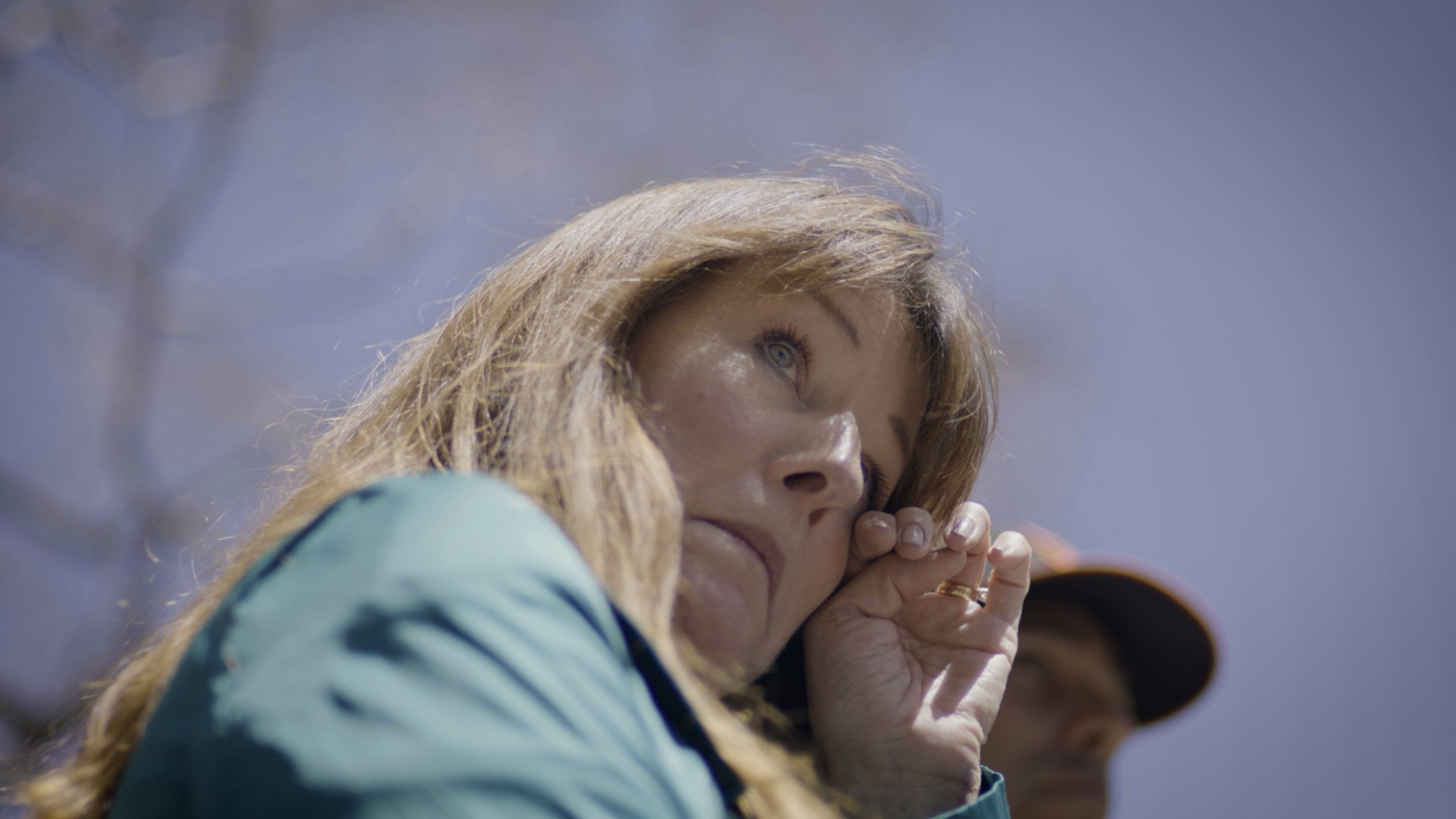A Bay Area mother stood at the corner of Turk and Hyde streets last week to protest the open-air drug market in the Tenderloin and save her son’s life. Jacqui Berlinn, whose 31-year-old son Corey is addicted to opioids and living on the streets of San Francisco, is afraid that any day could be her child’s last unless something is done to stop the rampant sale of drugs—particularly fentanyl—in the area.
San Francisco saw 713 deaths from accidental overdoses in 2020, with 2021 on track to be even more deadly. More than 500 of last year’s deaths—or 72%—were attributed to fentanyl, a highly potent, synthetic opiate that can kill a person in minutes.
“I can tell you that my son did heroin for years. He just started using fentanyl this past year and he has deteriorated faster than he ever did,” said Berlinn, who wants to see an end to San Francisco’s tolerance of open-air drug dealing (opens in new tab).
She says Corey, who loves music, football and movies, comes to San Francisco “because it is the easiest place for him to access what he needs and wants in order to continue his drug addiction.”
“I don’t know what else to do other than to call on the experts and the politicians, and just society and the community, to help make changes and maybe save my son’s life and the lives of others in the same situation,” she said.

Berlinn, with the help of author and activist Michael Shellenberger, created an organization called Stop Fentanyl Deaths (opens in new tab) to draw attention to the drug dealing situation in California. They have plans to protest the open-air drug scene in Venice, Los Angeles on June 2.
Last week’s rally drew families who have lost children or siblings to drug addiction as well as politicians and other community members. Thomas Wolf, a recovering heroin addict who spent nine months homeless on the streets of San Francisco in 2018, spoke at the Tenderloin event.
“Everybody here, regardless of your political affiliation, knows that the problem is out of control in this city,” he said. “Unless we do something as a city to stand up and ask for some measure of accountability, combined with services, the problem’s only going to get worse.”
Supervisors Matt Haney and Ahsha Safai also spoke at the rally. “We agree that fentanyl is a death sentence and there’s nothing more urgent than stopping this epidemic and crisis in San Francisco right now. We all have to do more, including me,” said Haney.
Berlinn advocates for mandatory drug treatment as an alternative to jail for severely addicted people like her son who break the law. Currently, Corey would need to make the decision to enter treatment himself, which Berlinn says he’s unlikely to ever do because his addiction is so all-consuming.
“Jacqui said the only thing that will save her son’s life is if he gets locked up and is compelled into treatment. Do we have programs like that in San Francisco?” Safai asked the crowd.
“We don’t,” he said.

Berlinn also wants local governments to break up open-air drug scenes like the one found on Turk and Hyde streets, and believes that San Francisco relies too heavily on harm reduction while not placing enough emphasis on recovery, thereby making it easy to remain addicted to hard drugs.
Berlinn says she hears from her son sporadically, and is able to see him in person a couple of times a year, though only when he contacts her from a borrowed phone. She’s given him dozens of cellphones which she says end up lost or stolen, as well as a medical bracelet with her phone number on it which he also lost. “So I live with that fear that he could end up injured in the hospital or even dead and nobody will contact me,” she says.
“My greatest fear is that my son is going to overdose on fentanyl,” says Berlinn. “I really feel like if he doesn’t get help, he’s going to die like so many of his friends have on the streets.”
Are you or someone you know in need of drug addiction counseling or treatment? The San Francisco Department of Public Health can connect those seeking help to a “warm line” for non-emergency peer counseling at 1-855-845-7415. More information about substance abuse residential treatment and bed availability can be found at findtreatmentsf.org.
Video by In Jeong Kim.